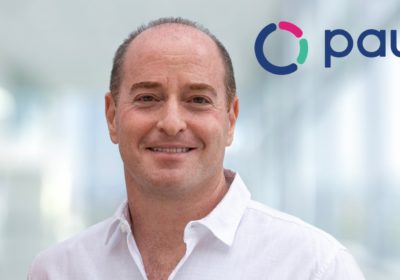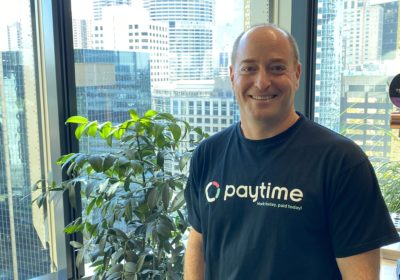
- Author: Jessica Mudditt
- Posted: June 16, 2022
The CFO for CFOs – DiviPay’s Damon Hauenstein on his first 100 days
Damon Hauenstein did not take the traditional route in his journey to becoming CFO. The former investment banker describes his approach to scaling up the fast-growing fintech DiviPay.
When the global financial crisis hit in 2008, Damon Hauenstein was still fresh in his role as an investment banking advisor at Citi. Banks were shedding staff at an alarming rate, but Hauenstein weathered the storm and remained with the bank for over a decade. His role saw him work with boards, CEOs and CFOs to execute mergers and acquisitions and capital markets transactions. There was also regular travel to global financial hubs such as New York and Hong Kong.
By the time Hauenstein left Citi in 2021, he had overseen an eye-watering $20 billion worth of transactions.
“It was a great first step in my career,” he says. “As a global bank, Citi had a global orientation and outlook. It opened my eyes to a host of different industries and geographies. I loved partnering with boards and C-suite executives to help them realise their plans.”
Hauenstein had a double degree in Commerce/Law from Deakin University and was also the president of the Law Students’ Society, but the world of finance held greater appeal than a career in law.
“Working in finance means being at the epicentre of the economy,” he explains. “It’s a highly collaborative environment – working with teams across strategy, finance, accounting, legal and tax.
You’re sitting right next to the CEO and the board as their trusted advisor to bring all these pieces together. Even at a junior level, you have to understand the big picture.”
No more photocopied credit cards
In March, Hauenstein took up the role of CFO at fintech DiviPay, a spend management tool. He sees his current role as an extension of his previous one, while also representing a fresh challenge in the world of startup fintechs.
“At Citi, I was partnering with senior business leaders to execute their strategy. In a lot of ways, my role at DiviPay is about partnering with the two founders, Daniel [Kniaz] and Russell [Martin], to scale up the business and execute their strategy. It’s just that now I am doing this for a company internally.”
DiviPay’s spend management technology provides businesses with real-time visibility of business spending via virtual cards. It reduces the need for staff reimbursements and eliminates credit card sharing. It also frees up time previously spent completing the associated paperwork, as it synchronises with accounting systems. The finance team can set spending limits for individual cards. It is also a far more secure method than the informal way in which SMEs often handle expenses.
“We often see a business founder starts with a personal credit card that they use for business expenses. Initially it’s just them making purchases, but then one day they’ve got 50 people and everyone needs to purchase things. Often the founder will photocopy their personal card and keep it in the office so that everyone can use it. This can quickly become an administrative nightmare.”
Furthermore, should a hacker get hold of the details for this card, the card has to be reissued and every payment and subscription linked to this card collapses. DiviPay charges a simple monthly subscription fee to prevent that scenario, as well as providing strong visibility and auditability over spending.
In December, DiviPay announced that it would grow its team by at least fourfold following a $20 million Series A raise. In appointing its first CFO, DiviPay will gain a better understanding of a product that is created for CFOs and will be able to pre-empt its customers’ needs and pain points.
Busy on all fronts
Hauenstein says that the first 100 days on the job have been a great learning journey. DiviPay is growing fast, with the headcount doubling from 20 to 40 since he joined.
“There’s a huge amount to learn when going from an advisory role to a principal one,” he says. “I have become exposed to many functional areas that you just don’t touch in a large global organisation. As the CFO, I have to be across them because they have financial implications. Every day is different and there’s a lot of enthusiasm around the room. It’s an amazing team and culture – everyone’s hungry.”
On top of the new professional terrain he has been navigating, Hauenstein became a father before he had even finished his first month in the job. He and his wife also got a puppy in January – a combination he calls “the perfect storm.”
“I started at DiviPay and then [new baby] Oliver came a little earlier than anticipated! DiviPay were fantastic in their support. [Co-founder] Russell welcomed a baby around the same time, and they were of course happy for me to take time off to spend with the family.”
Hauenstein works from home in Melbourne, and flies to Sydney regularly to spend time with the team in Surry Hills, where he also mentors staff members. He feels that the new flexible work patterns brought about the Covid-19 pandemic has been a definite plus for work-life balance.
“I’ve found that it has worked really well, to be honest. I’m available when people need me for meetings, and there is a much greater flexibility to schedule meetings. And I can play with our baby and take our puppy for a walk in between things at work.”
Blending skillsets
Hauenstein’s focus has been on setting up the platforms and systems that are needed to scale the business. He has been working on getting the right financial and technology stack in place and refreshing DiviPay’s go-to-market processes.
“The tech stack allows us to make better, data-driven decisions,” he says. “Instinct and intuition remain important, but as the business grows, you want to have robust data to support the decisions being made.”
One of the key appointments that Hauenstein has made since joining is a financial controller. Chloe Dung started last week and comes from a more traditional accounting background, which will complement Hauenstein’s skillset.
“Chloe brings a Chartered Accounting lens to our business. She will ask certain questions about how the product works that differ from the questions I will ask, because I come from a more strategic background. That’s great, because our customers have a mix of backgrounds too.”
DiviPay currently has more than 1,500 customers in Australia – including industry leaders like Canva, Eucalyptus and Mr Yum – and it rapidly bringing more onboard. The fintech has ambitious plans to provide its technology to businesses further afield.
“Today, we’re Australia-centric. But we’re putting a lot of investment into new products and features. For example, we have just launched support for complex workflows and automations that we observe in bigger businesses. As we put all the right pieces in place, you’ll see us move into international markets.”








